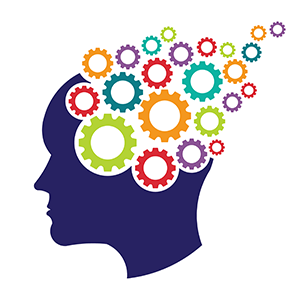What is CBT Therapy & What I Expect
 Cognitive behavioral therapy (CBT) is an extremely effective, well-researched psychological treatment that is often recommended as the first-line intervention for most psychological distress and many mental disorders. No other type of psychotherapy has been found to be superior to CBT.
Cognitive behavioral therapy (CBT) is an extremely effective, well-researched psychological treatment that is often recommended as the first-line intervention for most psychological distress and many mental disorders. No other type of psychotherapy has been found to be superior to CBT.
Cognitive behavioral therapy (CBT), developed by Albert Ellis (1962) and pioneered by Aaron Beck (1970), consists of the basic principle that our unhealthy thought patterns contribute to and help to maintain most of our emotional distress and behavioral problems. CBT has been found to be particularly effective for the treatment of depression and anxiety disorders, e.g. social anxiety, generalized anxiety disorder (GAD), specific phobias, panic disorder and obsessive compulsive disorder (OCD), as well as relationship problems and anger issues.
The Process of CBT
CBT utilizes a rational, active, educational approach that focuses on how to change and find solutions instead of just simply talking about your past, “exploring” your feelings and problems or finding “root causes” of current difficulties. Instead, CBT therapists help people to see how their thoughts and behaviors affect the way they feel and how this contributes to their problems. For example, people who are depressed often have negative thoughts that keep them stuck “I’m such a loser, no one really likes me” and as a result, they often stop participating in activities with family and friends and avoid doing things that they would normally find enjoyable. This often makes them feel even worse and leads to more negative thoughts “I hate the way I am, things will never get better” and a vicious cycle begins. CBT therapists encourage individuals to participate in behaviors and activities they find pleasurable and help people to notice that the way they tend to think contributes to how they feel and behave.
Examples of unhealthy thinking that CBT will address:
- Depression: I can’t do anything right . . . I’m such a failure . . . Everything in the world is a mess . . . I’m feeling too down to be around anyone . . . What’s the point . . .
- Social Anxiety: Everyone will see me blush . . . People will think I’m awkward . . . I won’t be able to think of anything to say . . . They will all notice how nervous I am . . .
- Generalized Anxiety Disorder: What if we won’t be able to pay our bills . . . What if there’s a school shooting . . . What if I get fired . . . I can never get everything finished . . . I can never relax . . .
- Panic: My heart is beating so fast, I think I’m going to have a heart attack . . . These weird out-of-body feelings must mean I am going crazy . . . I have to pull over, I can’t breathe, I’m going to pass out . . .
- OCD: These awful thoughts that keep popping in my head must mean I am a horrible person . . . These awful thoughts must mean I am going to lose control and do it . . . If I don’t go back and check, I’ll be responsible for a fire, it will be all my fault . . . I need to do this again until it feels right . . .
- Relationship Problems: He never helps me with anything. . . She wants to control everything I do . . . If he loved me, he’d know what I was thinking . . . She is always doing this to me . . .
- Anger: I can’t believe I have to stand in this annoying line . . . These people don’t know how to drive . . . Everything they say is so stupid . . . I can’t believe I have to explain it to them again . . .
How CBT Helps
CBT therapists often ask their clients to begin to notice the ways they are thinking about themselves and the people and situations around them. Clients then are often asked to test out whether the way they view things is really the only way of thinking. Most often, clients find that there are alternative ways of looking at situations. To be sure, this doesn’t mean that you will be told that your thinking is wrong or that you should be thinking positively or looking on the bright side. CBT is much more about viewing people and situations in a rational way to see if the assumptions you typically make may contribute to the difficulties you are experiencing.
CBT at GroundWork
At GroundWork in Orlando, we strive to offer the highest quality of cognitive behavioral therapy (CBT) to our clients, utilizing empirically supported, established treatment plans that have shown to be effective methods of treatment for depression, social anxiety, panic attacks, phobias, social anxiety, and obsessive compulsive disorder (OCD). Each therapist at GroundWork Counseling has specific training in CBT, so you can be assured you are receiving actual CBT. Our primary goals are to ensure that you feel supported and cared for while also delivering purposeful guidance as you work toward achieving your goals.
Ready To Make A Change?
GroundWork is proud to offer both in-person and virtual Telehealth appointments to clients located in Florida.

